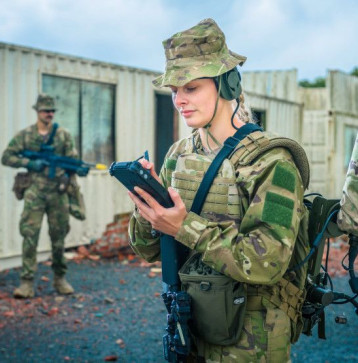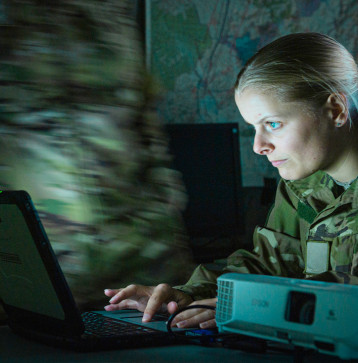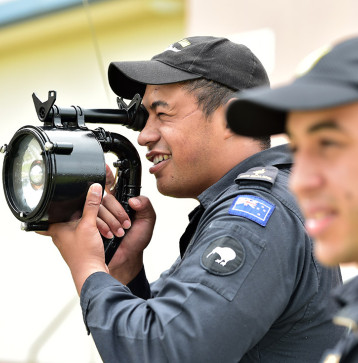
Radio Frequency Technician (IT Specialist)
Skip to section:
About the role Training and career progression Salary and benefits Entry requirementsBecome part of a committed team that engineers and manages Radio Frequency networks for the NZ Army. The skills you gain in this trade will help to develop you for future roles within the IT industry.
- ServiceArmy
- SpecialisationIntelligence, IT and Communications
- LocationPalmerston North | Christchurch
-
Starting Trade Training$64,177
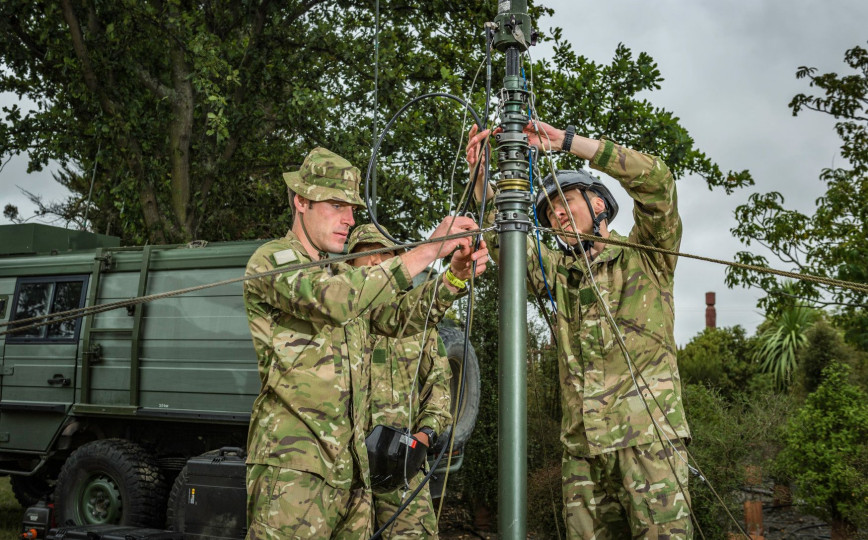
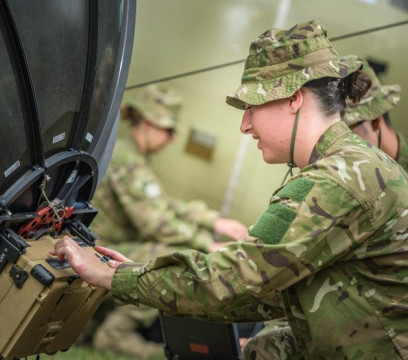
About the role
For future intakes, you will join the Army as an IT Specialist, before branching into a specific trade towards the end of Signals Corps training: Either Radio Frequency Technician, Electronic Warfare Operator, Information Management Specialist, Information Systems Operator or Systems Engineer.
As a Radio Frequency Technician, formerly known as Communication Systems Operator (CSOP), your primary role is to provide and maintain radio frequency networks for NZ Army's Communication Information Systems. Your training and employment will see you conducting this role throughout NZ, whilst also providing opportunities for overseas travel.
You will work in a team environment, sometimes in high pressure situations, to enable data and voice networks for effective command and control of NZ Forces. During your training you will learn to operate various military radio systems that cover the HF, VHF, UHF frequency spectrum. You will receive training on military and commercial satellite communications terminals that operate in the Ka, Ku and X band frequency spectrum.
As the NZ Army modernises its radio frequency networks and keeps pace with technological change, your role and skillset will be highly relevant, with opportunities for personal growth and professional development.
Job on base
Your day to day activities will involve working as a member of a Communications Access Node (CAN) Detachment. Within camp, you will be responsible for maintaining and operating radio frequency links and communication equipment. You will also conduct training to stay proficient in general soldiering skills such as physical fitness, weapon handling, medical and vehicle based training tasks. Additionally, as a trained RF specialist your role may see you interacting with personnel from other NZ Army units providing training, advice or assistance to meet their specific communication requirements. In the field, you will be responsible for establishing and maintaining radio frequency networks and assisting in Command Post Operations. This will primarily be conducting vehicle based operations, although various scenarios may see you working out of hard-standing infrastructure or at times dismounted in support of other units.
Job on deployment
Deployments of NZ Army personnel will almost always require our own communication networks. As such, Radio Frequency Technicians are highly deployable and are regularly employed on overseas missions and exercises, primarily in support of other NZ Army units. Whilst deployed, you can expect to interact with personnel from other nations militaries to establish and maintain radio frequency communications, as well as elements of the Air Force and Navy. Your role could involve establishing and maintaining a variety of RF networks, managing radio traffic and information flows within a Command Post or conducting training on the use of radio frequency equipment to other personnel.
"A person that would best fit a [Radio Frequency Technician] is someone that is a fast learner, they have high standards, and someone that definitely wants a sense of adventure and challenge."
Training and career progression
Overview
Basic Training
Job Training
Ongoing Training
Your trade training includes a mixture of courses and on the job training, and will span over an approximate six year period. Courses to progress your career will vary in content. Trade specific coursing will focus on your individual technical skills as a Radio Frequency Technician. Promotion coursing will focus on your personal communication, decision making and leadership ability. Further coursing will focus on your ability to make technical and tactical decisions so that you can provide the right communications solutions at the right time, to the right people.
Initial posting locations will see you posted to Burnham or Linton Military Camps. As your career progresses, job opportunities in Auckland, Waiouru and Wellington can become available.
Basic training
Upon enlistment into the Army you will be posted to Waiouru Military Camp. Here you will complete 16 weeks of basic military training to find out if you have what it takes to be in the Army. The training will include:
- Organisation and Administration
- Army Customs and Protocol
- Drill and Parades
- Military Field Skills and Weapon Training
- First Aid
- Physical Fitness
Royal New Zealand Corps of Signals Corps Training Course
You will start your initial communications training with a five month course at Linton Military Camp. On this course you will learn to operate a broad range of radio and communications equipment, whilst gaining an understanding of computer and networking systems. This primary course is the building block of comradeship within the Royal New Zealand Corps of Signals.
During this course, you will gain exposure to the five individual trades that make up our IT Specialists. This will help to inform your selection of which career path to pursue going forward. Selections for these trades are based on factors such as your personal and location-based preferences, existing qualifications and experience, your performance as well as the availability of positions.
Radio Frequency Technician + Information Management Specialist Junior Course
This five week course conducted at Linton Military Camp will teach you the requirements to operate all Communications Access Nodes (CANs) and their RF suites, including Satellite and Cellular systems. You will also learn first line operational support within a Command Post environment. You will receive instruction on advanced combat radios, construction of HF, VHF and UHF antennas, wide band satellite systems, communication security processes, Command Post operations and information assurance.
Radio Frequency Technician Intermediate Course
This four week course conducted at Linton Military Camp will teach you the requirements to operate as a Detachment member or as an independent deployed Signaller. You will be taught basic electrical principles, planning and designing long range radio communications, advanced radio operations and managing multichannel satellite links.
Radio Frequency Technician Senior Course
This four week course conducted at Linton Military Camp will teach you the requirements to design, implement and advise on RF communications systems. You will be taught data communications concepts, multiplexing concepts,RF technology concepts, planning short and medium distance communications links, frequency plan designing and how to produce communications instructions and cellular communications technologies.
Trade Promotion Courses
The Detachment Commanders Course and the Troop Sergeants Course are part of your career progression. They are designed to test your trade knowledge and skills as well as your leadership ability. The skills you learn on these courses are then put to use during your day to day work back at your unit and in the field. The Communications Information System Electronic Warfare Managers Course is a more advanced course which will train you in the administration, design and management of communications and information systems. The course is designed to test your management skills and your ability to plan, and manoeuvre communications assets on the battlefield.
Additional Courses
Your Radio Frequency Technician trade training will include some civilian IT Industry qualifications. Adding to your professional development, you will attend a number of NZ Army command courses to enable you to develop your leadership. These will combine to make for a diverse and challenging learning environment within the NZ Army.
Further coursing, available to NZ Army personnel also exists outside of your trade training. This includes (but is not limited to), driver licensing courses, first aid and medical courses, shooting instruction courses, written and verbal communication coursing and more.
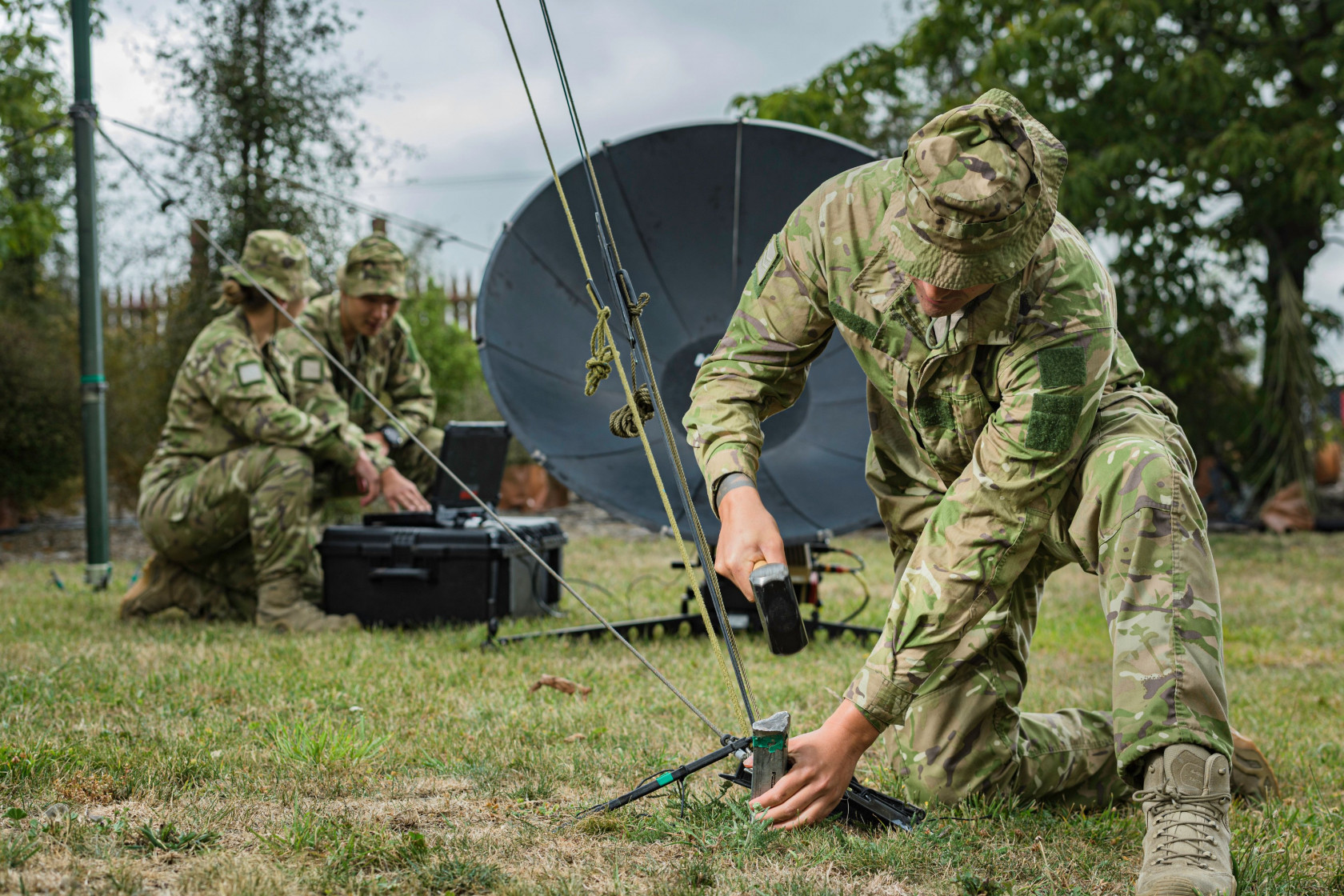
Salary and benefits
Careers in the Army are well-rewarded, diverse and exciting. As you become more experienced and move up through the ranks, gaining additional skills and qualifications, your salary will rise accordingly.
$50,597
Under Initial Training
$64,177
Starting Trade Training
$122,331
Future Potential Earnings
Figures updated on July 1st 2023
Benefits and allowances
Earn a competitive salary while training or learning your trade, along with additional allowances for time spent in the field, at sea, overseas, or deployed on operations.
In addition to salary and allowances, other benefits of joining the New Zealand Defence Force include:
Access to your Service marae or tūrangawaewae
Sponsored tertiary study programmes at all levels
Free access to gyms and swimming pools on camp and bases
Opportunities to travel
Free and subsidised medical and dental care
Subsidised food and accomodation on camps and bases
Free and subsidised insurance cover
Help to buy a home and save for retirement
Entry requirements
Basics
Education
Fitness and Medical
Citizenship
Period of Service
- You must be able to obtain a TSV security clearance (see Citizenship tab)
- You must be a NZ citizen.
- You must be at least 18 years of age at the completion of your basic training.
NCEA Level 2 certificate required. Prior IT qualifications and work experience are beneficial but not necessary.
Find out more about the NCEA levels and certificate requirements.
- You must be medically fit for service.
- You must meet the minimum entry fitness standards.
- Colour perception restrictions may apply.
There are strict citizenship and security requirements to gain the required TSV security clearance for this trade.
Find out if you’re eligible here.
On completion of your training, there may be a return of service period for this trade.
Please contact our 0800 number or talk to your Candidate Engagement Facilitator for more information.
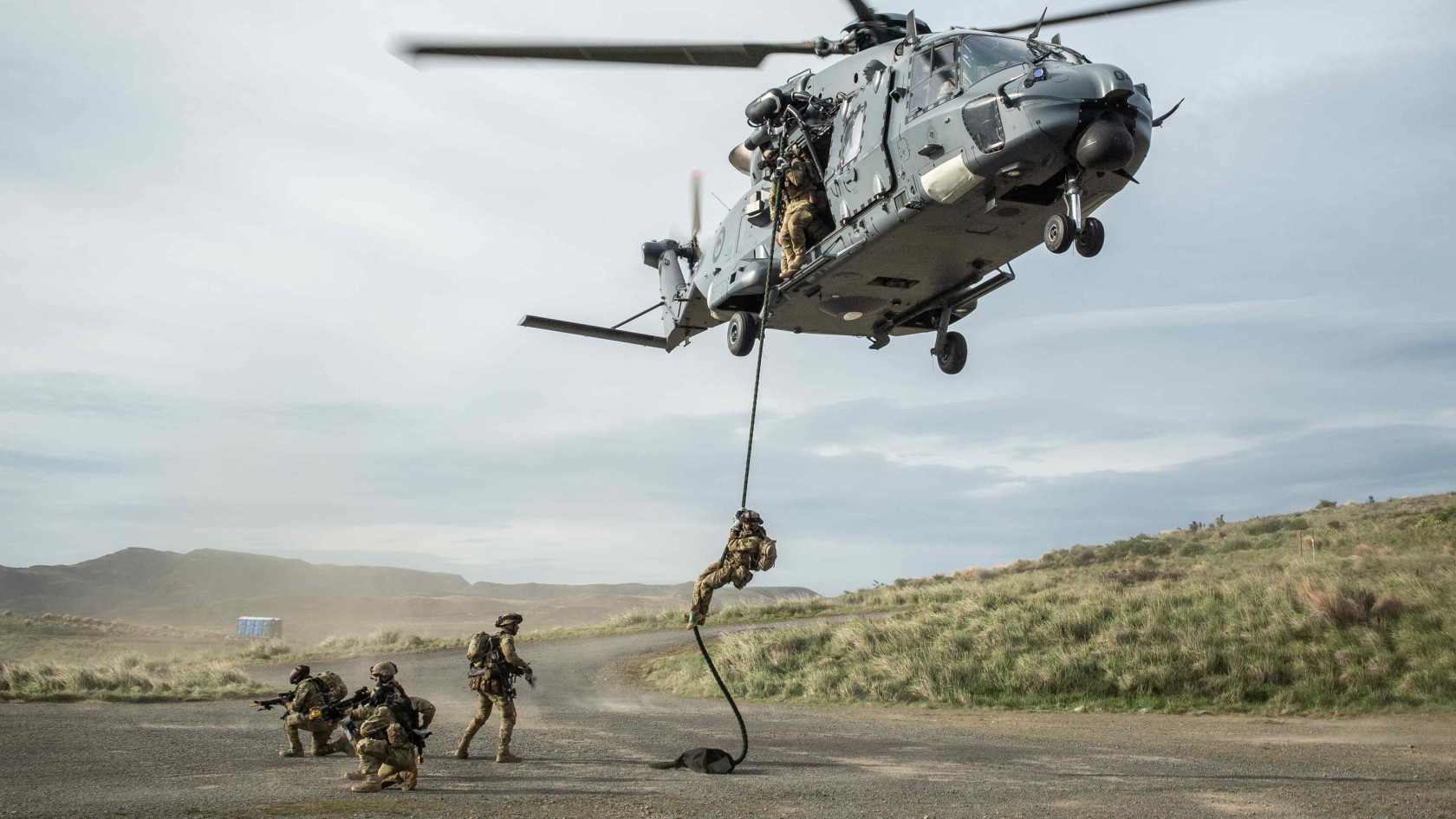
Ready to start your Army career?
Other jobs you might like
You can also browse jobs by specialisation to narrow down your search.

